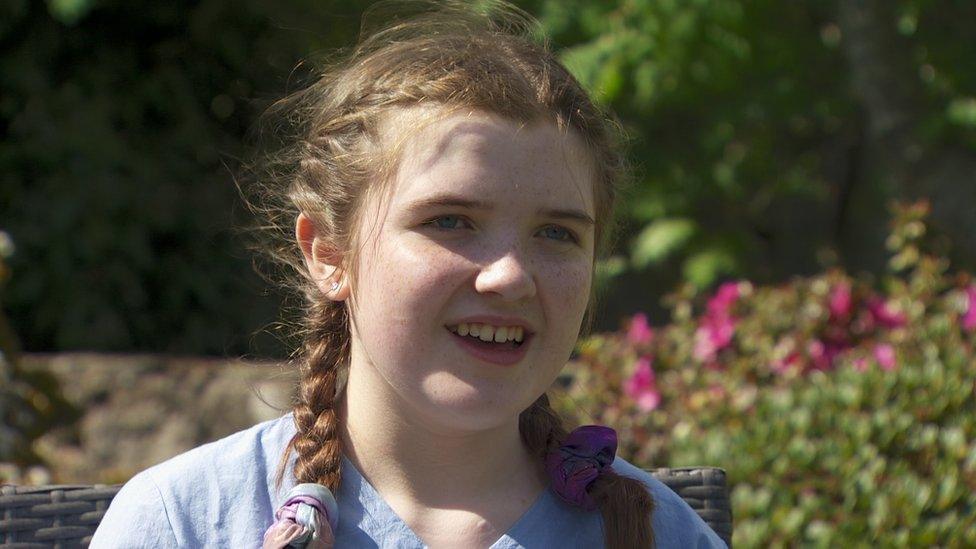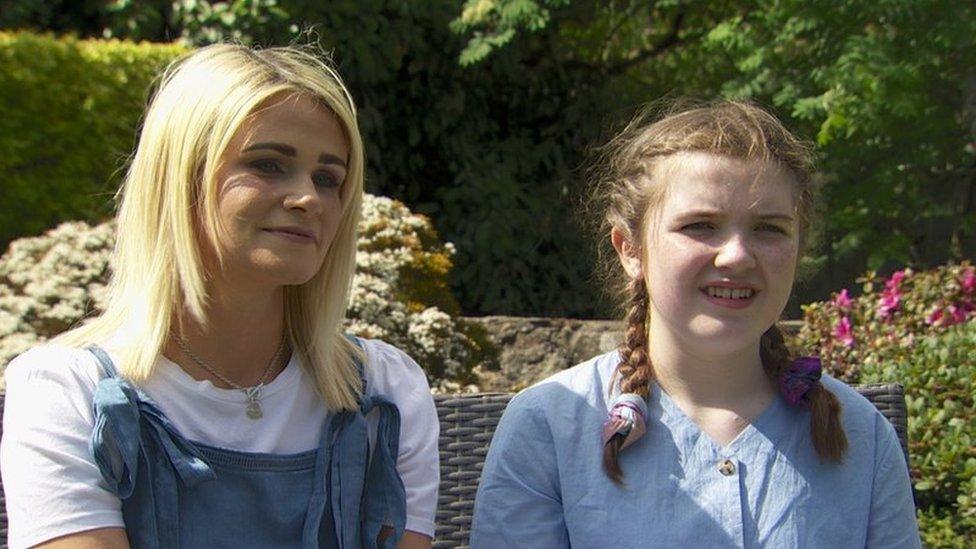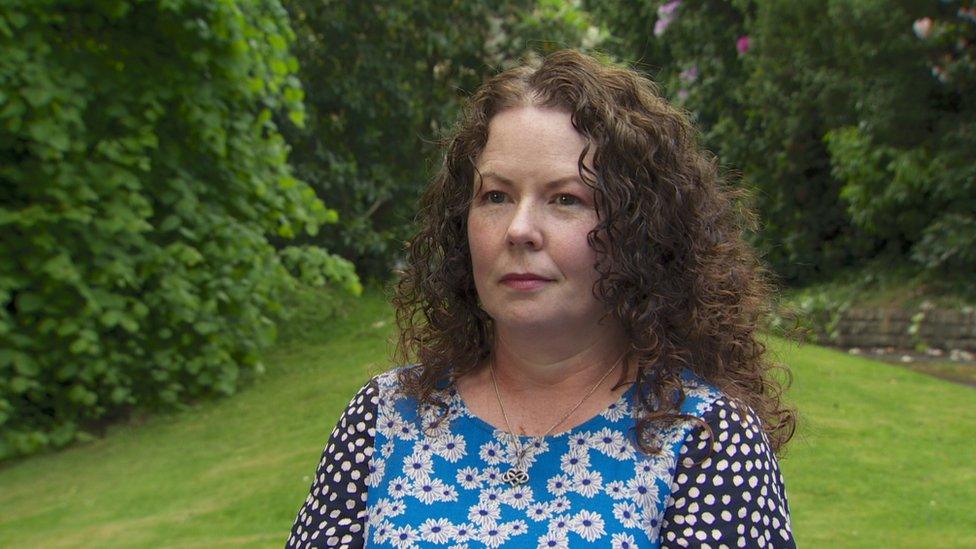PoTS: Rare condition 'robbing' County Down girl of childhood
- Published
Seeking a diagnosis
A mother from County Down has said a debilitating condition which causes fainting episodes has "robbed" her daughter of her childhood.
Helen Grattan has been struggling to get a diagnosis for 10-year-old Maia for more than a year.
She told BBC News NI that it has been "extremely tough watching Maia suffer".
"I, as a mum, have done everything I can to try to get a specialist to diagnose her and it is very hard that we can't," she added.
Every day is different for her and she has these episodes three or four times a week, she said.
According to Ms Grattan, medical tests have found symptoms consistent with PoTS (Postural Tachycardia Syndrome) - a rare condition that causes an abnormal increase in the heart rate and can cause dizzy spells or fainting. , external

Ms Grattan says Maia needs medication
In a statement, the Southern Health Trust said: "In the UK, Postural Orthostatic Tachycardia is usually managed between general paediatric and paediatric cardiology specialist teams.
"This is the same level of care that is offered in Northern Ireland."
'Sweating, dizziness and faintness'
It is believed Maia may have contracted the condition after an infection in 2019.
Her symptoms include a racing heart rate and fainting, followed by extreme fatigue.

Maia says she can feel "dizzy and warm" with blurry vision
"Maia will feel one coming on," said her mother.
"Her body temperature gets very hot. She gets sweaty, dizzy, faint, her eyes go blurry. Her body will jitter sometimes and the fatigue afterwards tires her out for a day after it.
"School have been brilliant with Maia but unfortunately she has missed a lot of education because of PoTS."
Ms Grattan said she was desperate for a definitive diagnosis so they can access the right treatment.
"I have totally relied [on] online forums and I have also ordered books online and read up about it," she added.
"With other diseases or conditions you are always handed pamphlets or leaflets in the hospital. We have none of that.
"We have no specialist to sit down and talk to; nobody to ask questions with and nobody there for reassurance."
Lack of medication
The family have paid privately for a cardiology consultation and are prepared to travel to specialists in London if no help can be accessed closer to home.
"Every day you just don't know. Maia's childhood has been robbed," she said.

Helen Grattan and daughter, Maia, have said living with the unknown is frightening
"She can't go out and play like a normal 10-year-old. She can't go on her horse the way she used to. It's just awful," she added.
Ms Grattan said there is now a problem with medication, which her daughter needs to have a normal day-to-day life.
"We can't get that because nobody is here for us to prescribe it. Maia's tests so far show that she has the symptoms of PoTS - the evidence is there," she said.
"There is another tilt-table test but the youngest person in Northern Ireland was 12 that got it," she said.
"Maia had E. coli a year before these episodes started - it may have triggered something in her nervous system - but that's not confirmed, I am just guessing.
"She will need medicated with tablets such as beta-blockers or sodium-release but again they are unsure because of her age and how much to give her."
For primary school pupil Maia, living with the unknown is frightening.
"I felt really dizzy and warm and my vision was starting to go pretty blurry," she said.
"Afterwards I get very frightened or worried that it's going to happen again. Sometimes I couldn't even get out of bed," she added.

Postural Tachycardia Syndrome (PoTS)
The condition causes an abnormal increase in heart rate that occurs after sitting up or standing.
Some typical symptoms include dizziness and fainting.
PoTS affects a range of people but is most common in girls and women aged 15 to 50.
Some people have mild symptoms, while others find the condition affects their quality of life.
PoTS often improves gradually over time, and there are some medicines and self-care measures that can help.
SOURCE: NHS

Meanwhile, Dr Caitriona Dynan, who was diagnosed with PoTS after contracting Covid-19 last year, has added her voice to calls for more awareness around the condition.
She wants to see some of the Department of Health's projected £2m long-Covid funding directed towards training specialists.

Dr Caitriona Dynan said awareness about the condition must be raised
"Unfortunately PoTS is a Cinderella-type disease that a lot of people have never heard of," she said.
"There's not a lot of research has gone into it and there are not enough specialists, particularly in Northern Ireland - I don't think there is a single specialist for people to see.
"There needs to be raised awareness for GPs and general medical consultants... so that these people get treatment," she added.